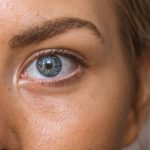Here Are Our Top Tips for Healthy Aging Month
Aging is inevitable. In honor of Healthy Aging Month, follow our top healthy aging month tips to preserve your health, vision and quality of life.
Actions we take today impact how well we age. We can’t stop time, but we can take steps to preserve our eye health and overall well-being. This may result in enjoying the beautiful things in life longer.
We recommend a three-prong approach to maintain a lifetime of healthy eyes:
- Prevention through good nutrition, eye safety, exercise, and healthy living to help prevent or slow age-associated conditions.
- Regular screenings to lead to early diagnosis. After all, we can’t control everything.
- Early treatment to slow damage from chronic diseases or conditions.
Your optometrist is your partner in your quest for healthy eyes.
How Aging Affects Our Eyes
Before learning our Healthy Aging Month tips, it helps to understand how aging impacts your eyes. Some changes to the eyes are as difficult to avoid as wrinkles, but you may be able to prevent other age-related vision problems through living an eye-healthy lifestyle.
Be aware that diabetes is the source of eye health problems for many older adults, so it should be no surprise that actions that positively impact your health also may help protect your eyes.
Common Age-Associated Eye Issues Include:
- Presbyopia – loss of flexibility in the lens that makes it hard to read or focus up close
- Dry Eye – changes in hormone balance and prescription drug interactions are just a couple things that contribute to dry eye.
- Diabetic Retinopathy – people with diabetes are vulnerable to eye damage caused by swollen or leaking blood vessels.
- Cataracts – As we age proteins within the eyes may clump to form cataracts.
- Age-related Macular Degeneration – thinning of the macula or development of abnormal blood vessels under the retina damage the eye.
- Glaucoma – Pressure and related symptoms damage the eyes and may result in loss of vision or blindness if left untreated.
Seven Of Our Top Healthy Aging Month Tips For September And Beyond
1. Protect Your Eyes From The Sun
UV damage is the biggest cause of premature eye aging. Protect your eyes by wearing high-quality sunglasses. Be sure to choose sunglasses that protect against 99-100% of both UVA and UVB rays. Also, consider wearing a brimmed or billed hat to shield your eyes during outdoor activities.
Protecting your eyes from sun damage helps prevent cataracts, age-related macular degeneration and other eye issues.
2. Eat A Healthy, Balanced Diet to Nourish Your Eyes and Your Body
A healthy, balanced diet facilitates healing and regulates blood sugar. Such a diet benefits your eyes, your brain and your whole body. Strive to include the following in your diet:
- At least five servings of produce: Aim for variety so you have the best chance to consume the range of vitamins and minerals your body and your eyes crave.
- Quality protein: Consuming enough quality protein ensures your body can continue to heal and repair as long as possible. If you are a vegetarian, seek protein from multiple sources to help ensure that you are getting a range of amino acids since most vegetables offer incomplete proteins.
- Minimal simple carbohydrates and sugars: Manage blood sugar by minimizing simple carbohydrates and sugars. Fiber helps slow carb absorption and helps regulate blood sugar. This is why a whole fruit like an apple is more beneficial than a glass of apple juice.
- Healthy Fats: such as the omega-3 fatty acids found in oily fish, walnuts, and other eye-healthy foods.
Sometimes, it is hard to get enough eye-healthy nutrients from diet alone. Some people benefit from taking nutritional supplements.
3. Live an Active Lifestyle
Frequent physical activity helps regulate blood sugar and keeps the body healthy. Diabetes is a leading cause of blindness later in life. Physical activity helps prevent and control Type 2 Diabetes.
Talk with your primary care physician for suggestions on how to live a more active lifestyle. Your eyes and your body will thank you!
4. Avoid Smoking
Smoking damages the whole body and is a risk factor for many age-associated eye diseases. If you currently smoke, quitting is one of the best things you can do for your eyes and your overall health.
5. Get Regular Comprehensive Eye Exams
Some serious eye health issues, like glaucoma, are symptom-less at first. Comprehensive exams offer the opportunity for early diagnosis and treatment. Early treatment may prevent or slow damage and maintain your vision and quality of life.
Talk with your eye care professional to learn the best examination schedule for you. This may vary depending on your age, risk factors, medical history and family history.
6. Eye Safety First
Be aware of whether your work or hobbies put your eyes at risk. If so, protective eye wear like safety goggles or computer glasses may prevent premature eye damage. Challenging yourself and staying active all help you age gracefully. Just be sure to protect your eyes when participating in any activity where you risk impact to the eyes or contact with flying debris.
7. Get Enough Sleep
Not only does sleep deprivation make you drowsy, but it also contributes to dry eye and other eye problems. During sleep, our bodies repair from the day’s stresses. As we age, our bodies do not heal as quickly. Don’t make it harder by neglecting sleep!
Prioritize sleep and strive to get the recommended 7-9 hours of sleep most nights.
To Wrap Up
We hope these Healthy Aging Month tips help you stay well for months and years to come. As mentioned, your eye health relies on professional care and regular screenings. Prevention, early diagnosis of any issues, and early treatment work together to maintain your healthiest eyes.
Charlotte residents trust their vision to the professionals at Piedmont EyeCare Associates. If you need to schedule a comprehensive eye exam, contact us to make an appointment.





